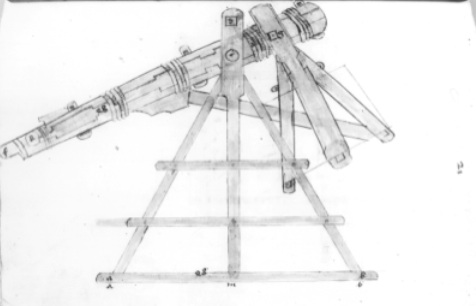
Looking at the trebuchet initially, it is hard to see any relevance to today’s world. Its last practical use occurred over 500 years ago and it has since been rendered completely obsolete by the invention of gunpowder. Furthermore, no original trebuchets remain, as they were assembled on site for use, and afterward, if they were not destroyed in battle, they were left to rot or used as firewood. A review of contemporary trebuchets provided no evidence of their impact- today, they are used only for recreation by a marginal group of enthusiasts.
Why, then, has the trebuchet survived, and why does it remain a part of our material culture?
Looking at the machine, we first see its effectiveness. Simple in design, the trebuchet converts potential energy into kinetic energy, and with the help of levers and the sling, uses this principle to generate massive amounts of power.
We see the impact of the trebuchet as a siege engine primarily in the dramatic redesigning of city fortifications that occurred with its spread. The trebuchet additionally influenced scientists who observed its efficiency, and other thinkers, impressed by the first use of gravitational energy by man.
We find the relevance of the trebuchet, however, in a study of its spread from China to Western Europe. Observing the methods with which this technology was transmitted, through peace and conflict, crossing social and physical borders, we can begin to see the trebuchet as an engine of globalization; in the cooperative creation and advancement of the trebuchet, the Chinese, Islamic, Byzantine, and Western European societies came to share a common material culture. As a symbol of globalization through conflict, the trebuchet holds great relevance in our society, perhaps helping to answer the questions of how our current conflicts around the globe will affect the cultures of the world.
Back to The Catapult
